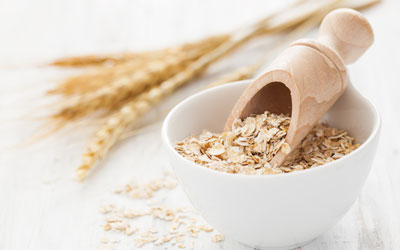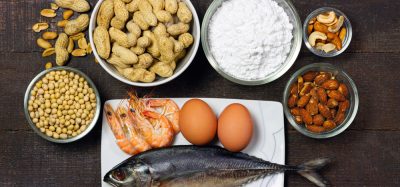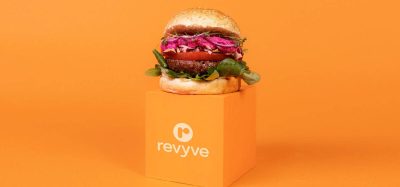Gluten free oat manufacturing
- Like
- Digg
- Del
- Tumblr
- VKontakte
- Buffer
- Love This
- Odnoklassniki
- Meneame
- Blogger
- Amazon
- Yahoo Mail
- Gmail
- AOL
- Newsvine
- HackerNews
- Evernote
- MySpace
- Mail.ru
- Viadeo
- Line
- Comments
- Yummly
- SMS
- Viber
- Telegram
- Subscribe
- Skype
- Facebook Messenger
- Kakao
- LiveJournal
- Yammer
- Edgar
- Fintel
- Mix
- Instapaper
- Copy Link
Posted: 23 April 2015 | Derek Croucher, Technical Director, Morning Foods | 2 comments
The gluten free category undoubtedly presents major opportunities to food manufacturers and significant health benefits to consumers, but there are many challenges relating to gluten free legislation and the realities of the oat supply chain. The onus is therefore on manufacturers, like Morning Foods, to ensure a strict supply chain and production process to guarantee a quality, certified gluten free end product, within the challenging context of the law.


The two main challenges associated with the supply of gluten free oats are minimising risk of consumer exposure to gluten and reducing the technical and commercial risks that stem from the reality of producing an end product that is ‘gluten free’ as defined in legislation.
What is gluten free?
Oats are defined within the allergen section of the European Food Information to Consumers Regulations as a ‘cereal containing gluten’ – despite the fact that oats themselves do not actually contain gluten. This definition is in place because oats are often cross contaminated with other gluten containing cereals in the field and through subsequent processing. Oats are therefore highlighted as ‘a cereal containing gluten’ in the ingredients listing of any product containing them (even if they are certified gluten free) – this provides a high level of consumer protection, primarily for those with a wheat allergy, but is also misleading. Oats do contain a similar protein called avenin, but most coeliacs can safely consume this.
Legislated levels
The legal definition of gluten free does not mean ‘free of gluten’ in the literal sense. Gluten intolerance is a spectrum condition with scales of severity and treatment; therefore it is about managing dosage levels of gluten. The Codex Alimentarius Commission (a joint venture between the World Health Organisation and the United Nations) updated their definition of the term ‘gluten free’ in 2008 – introducing a two tier classification – ‘gluten free’ (<20mg/kg gluten) and ‘very low gluten’ (between 20mg/kg and 100mg/kg gluten).
This principle was subsequently adopted within Europe and is enshrined within European Law, applying to foods as sold – not consumed – therefore taking no account of actual dietary intake and dose proportionality. This means that the same rule applies, for example, to both a ready meal sold at 20mg/kg gluten, where a whole product is consumed, as compared to a condiment, where only a small quantity is consumed – in these examples the actual amount of gluten consumed in a meal occasion would be very different.
If treatment of gluten intolerance is about managing dosage levels of gluten – how can dosage levels be managed with no dose proportionality within the law and no clear guidelines relayed back to the consumer? This issue poses a risk to coeliac and gluten sensitive consumers.
Sampling batch size requirements
What is also not included in either Codex Standard or European Legislation is any stipulation of the sampling batch size requirements when testing for gluten (a required test method is included in the Codex Standard, but not specifically within the European Regulation). The absence of clear legal guidance leaves consumers vulnerable to exposure and manufacturers open to technical and commercial risk.
As an example, take a 25 tonne lorry load of oats – if there was, by chance, just one rogue grain of wheat, the entire load would contain (on average) 0.000016mg/kg of wheat gluten per kilogram and is legally defined as gluten free.
This load (ignoring losses through milling) then divides into 625,000 x 40g individual servings of porridge – 624,999 are legally Gluten Free, but one serving would contain 100mg/kg of gluten, due to that one grain of wheat and would consequently not be gluten free. However, if we add 280ml of liquid and sell this as ready made porridge, it then contains 12.5mg/kg and becomes legally gluten free!
In reality, the whole load cannot be tested for traces of gluten. In the absence of legally specified sampling and testing regimes, testing is like a lottery – there is always the risk that the one batch tested contains the rogue grain of wheat and, according to the letter of the law, the whole consignment could be classed as not gluten free. The manufacturers would be relying on a risky assumption that ‘common sense’ would prevail and another batch would be tested, but there is a very real commercial risk that the consignment could be written off as contaminated, along with then a negative reputational effect on the company
The only way to ensure every serving of oats consumed is gluten free would be to test every 40g portion, which is clearly impractical. The overall risk therefore needs to be constantly minimised throughout the supply chain and production process, which is something Morning Foods manages through our dedicated eight-step process.
Eight step gluten free supply chain and production process
From selecting the purest seeds commercially available, using exclusively gluten free oat crops, machinery and storage to a dedicated mill and rigorous independent testing process, Morning Foods minimises cross contamination at every stage using an eight step supply chain and production process.
- Seed Selection: Specify of the purest seeds commercially available and always start a new crop with completely new certified seeds, rather than using seeds from the previous crop.
- Growing Process: Meticulous control of the previous cereal crops on our farms accompanied by ‘rogueing’ throughout the growing process, where our farmers walk the crops to check for potential contamination.
- Harvesting: We strictly specify dedicated gluten free oat crop/deep cleaned machinery to minimise risk of contamination during harvesting.
- Storage, Cleaning & Drying: We specify that gluten free oats are kept in local stores that exclusively hold oats, and that cleaning/drying equipment is only used for oats.
- Transportation to Mill: Transportation is arranged personally using our own transport to our dedicated oat mill, where we have a completely separate intake and handling system for gluten free oats.
- Milling: As we move from standard oats to gluten free oats, we run the mill empty and then carry out a ‘purge run’ of gluten free oats to flush out any rogue seeds and ensure zero contamination before moving onto an official gluten free production run.
- Packing: The gluten free oats are then packed on an exclusively gluten free packing line.
- Testing: Our gluten free oats undergo rigorous testing for gluten traces (see Figure 1), utilising the ‘Codex R5 Mendez’ method, required by the Codex Alimentarius. Physical samples are taken and visually checked before being scrutinised via an automated analytical sampling tool. Composite samples are then sent to an external accredited lab for verification.
As a result of the strict regimes across our supply chain, coupled with our robust testing process, Morning Foods has obtained a European license through Coeliac UK to use the crossed grain symbol on its gluten free products.
About the author
Derek Croucher is Technical Director for the Morning Foods group of companies, with responsibility for all regulatory, compliance and technical aspects. Derek is a graduate food technologist, with over 25 years experience of technical and operations experience in the food industry with many companies, including RHM/Premier Foods, ABF and Northern Foods. He has worked across frozen, chilled and ambient categories, on a wide range of different food types. He is involved in a number of key technical areas and has led projects with the Food Standards Agency and with the European Commission. He is an active member of several industry groups, both in the UK and Europe, including the FDF Allergen Steering Group, through which he has been a key contributor to proposed FDF Guidance on labelling of gluten-containing cereals and gluten free products.









Can I have the contact details for MORNING FOODS ?
Thanking-you,
Mitesh Somaiya
Hi Mitesh, you’ll find their contact details on their website: http://www.morningfoods.com/contact